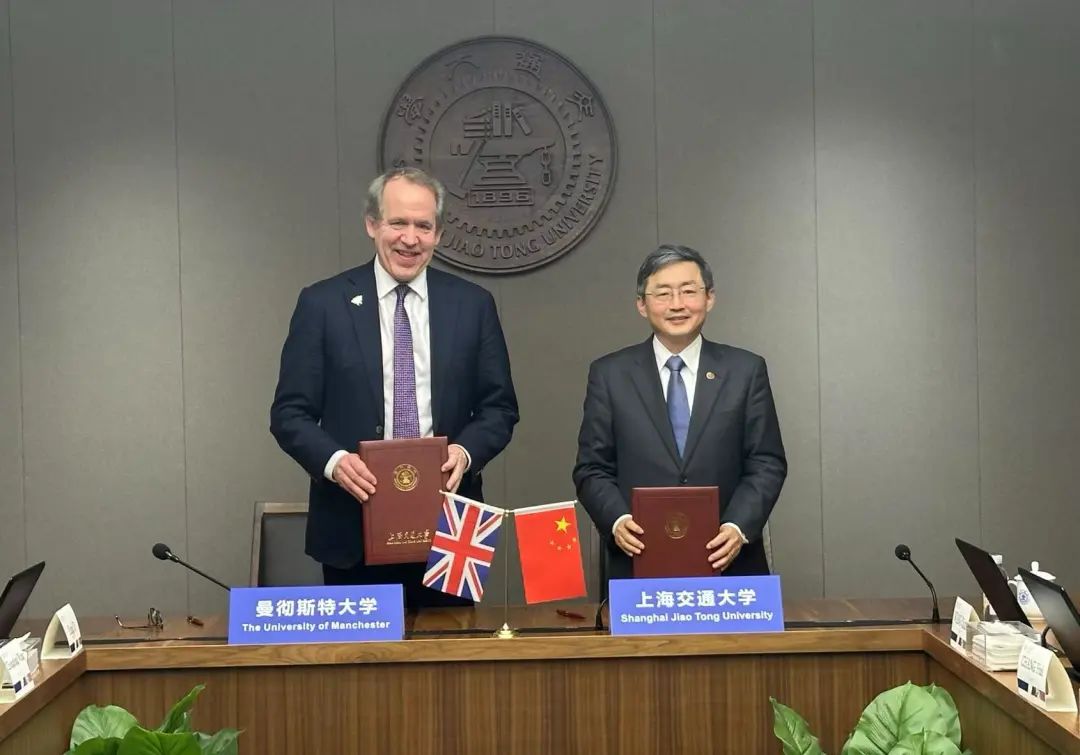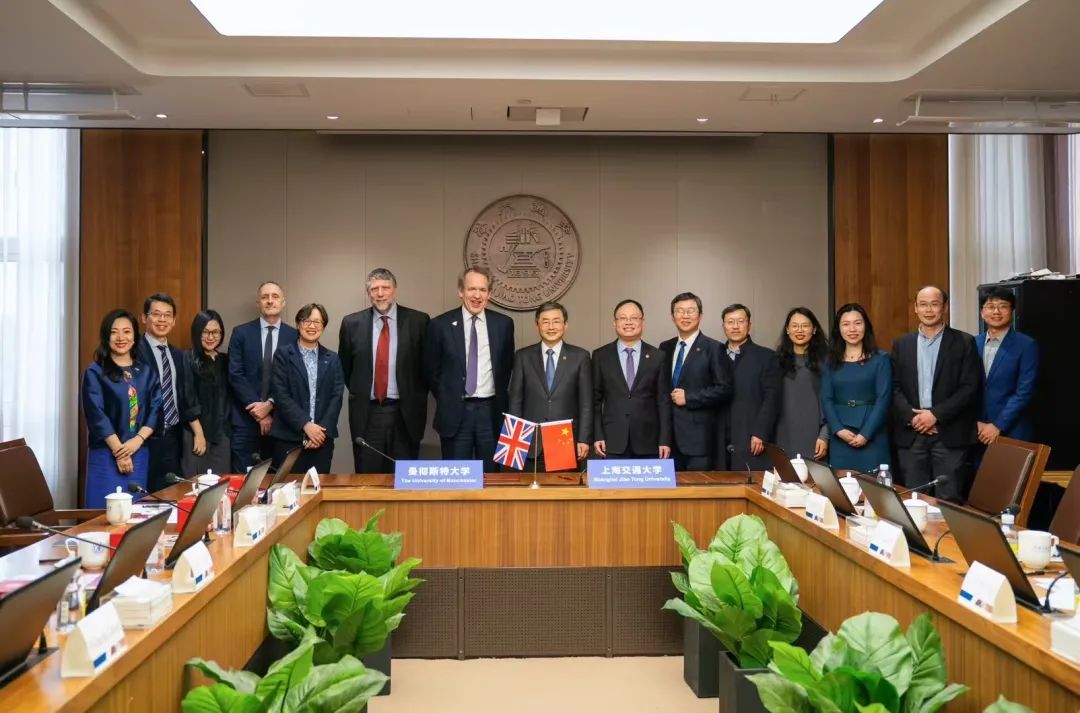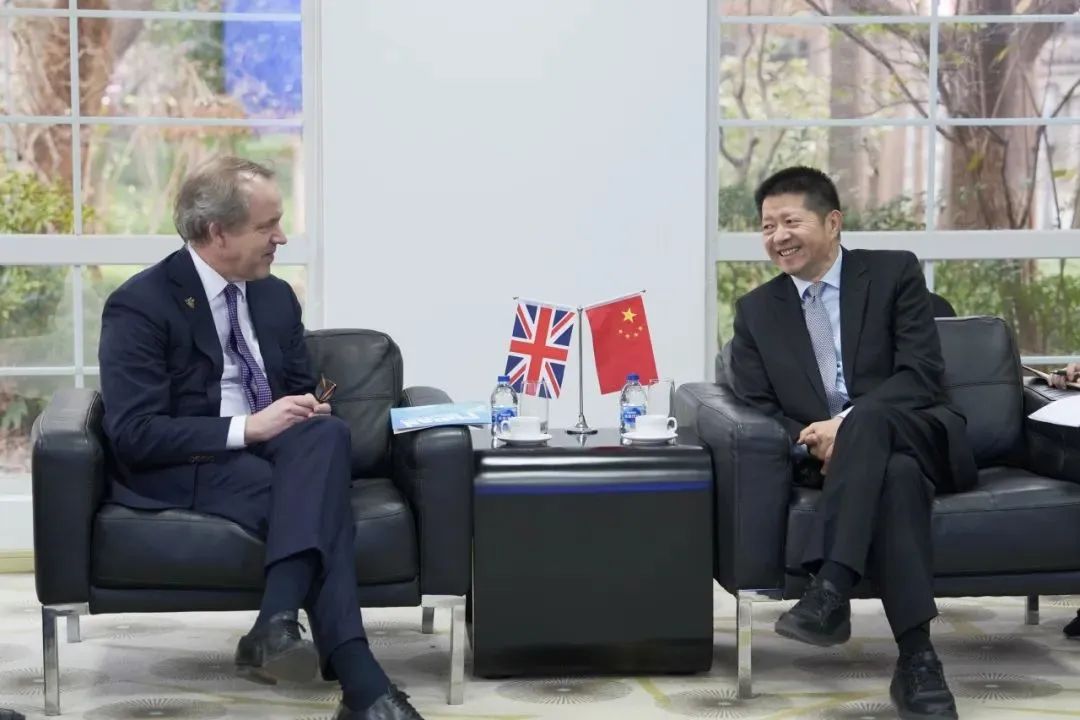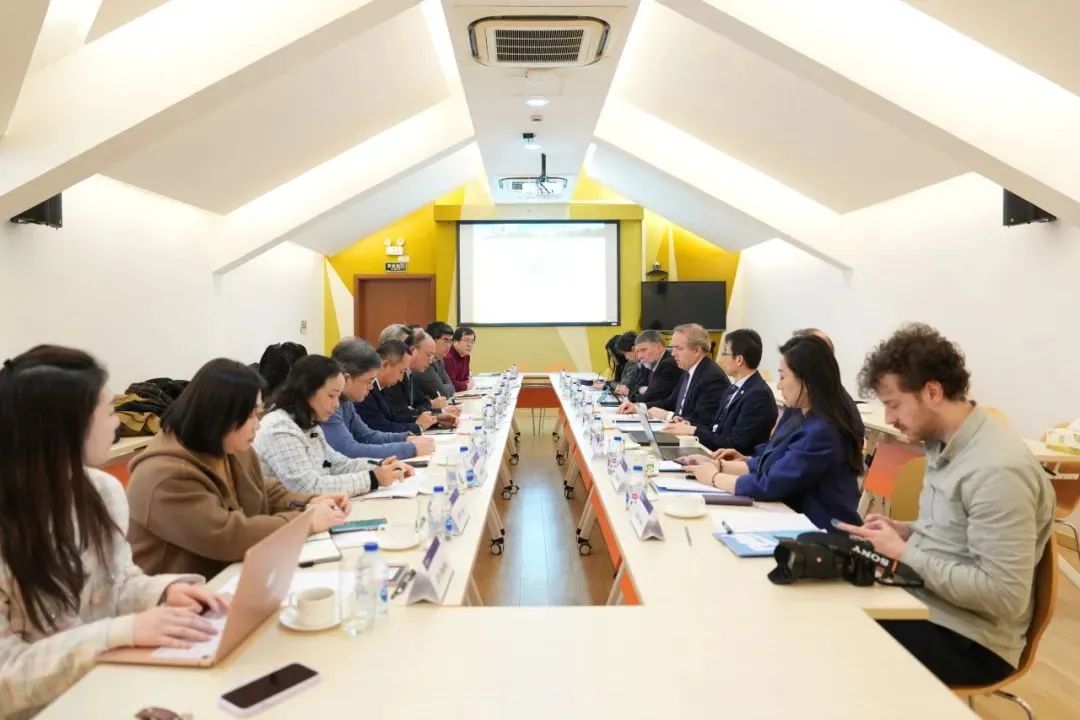菜单
日期:2025-02-28 浏览:467作者:UoM China Centre

On 26 February 2025, Professor Duncan Ivison, the new President and Vice-Chancellor of the University of Manchester (UoM), led a delegation to Shanghai as part of his visit to Chinese higher education institutions. Following his visit to Beijing, this trip focuses on enhancing cooperation and exchange with Chinese universities, with an emphasis on educational innovation, regional strategic partnerships, and the development of alumni networks. The aim is to further promote comprehensive collaboration between the University of Manchester and Shanghai universities in education, research, and cultural exchange.
A delegation of cross-faculty academics has joined Professor Ivison including Professor Stephen Flint, Associate Vice-President of Internationalisation, Richard Cotton, Director of International Development, Professor Zhongdong Wang, Associate Dean for International in the Faculty of Science and Engineering, Qing-Jun Meng, Associate Dean for International (Research & Innovation) in the Faculty of Biology, Medicine and Health, Sherry Fu, Director of the UoM China Centre, and Di Yang, partnership Manager.
On the afternoon of 26 February, President Ivison and his delegation visited Shanghai Jiao Tong University, where they engaged in constructive discussions with President Kuiling Ding. The two parties renewed their memorandum of understanding, focusing on continuing to deepen cooperation in research and talent development.

The Presidents of the UoM and Fudan University signed a memorandum of understanding

Group photo of two delegations
Following this, the delegation proceeded to Fudan University, where they were warmly received by Party Secretary Xin Qiu and Vice President Zhimin Chen. Both sides reflected on their longstanding cooperation and reached consensus on joint efforts in talent cultivation and research innovation in relevant disciplines.

Duncan Ivison (on the left) meets Xin Qiu (on the right)

UoM's delegation is meeting with Fudan University's delegation
President Ivison noted that the collaboration between the University of Manchester and its Chinese partners has a rich history, making this visit especially meaningful. He highlighted that it offers valuable insights for the university’s "Manchester 2035" ten-year development strategy. In his remarks, he emphasized, "International partnerships have always been a cornerstone of the University of Manchester. In today’s complex global landscape, academic collaboration and the enduring friendships it fosters are more important than ever."
This visit not only strengthened the ties between the University of Manchester and Shanghai’s academic institutions but also laid a solid foundation for future academic collaboration and cultural exchange. As the global landscape continues to evolve, the partnership between China and the UK in higher education and research becomes increasingly significant, contributing to the collective effort to address global challenges and advance education and technology.